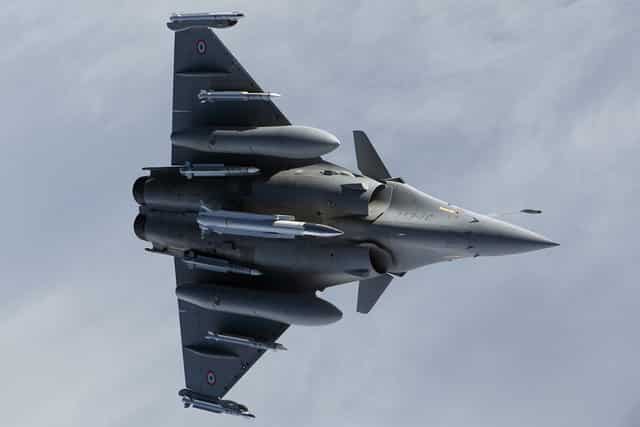We already knew that NATO had worked extensively behind the scenes to ensure the victory of the F-35A in Belgium face Typhoon and Rafale, and that the organization had been very upset about the German decision to eliminate the Lockheed aircraft from the competition aiming to replace its 80 Tornado attack aircraft, a competition which today opposes the Typhoon from Eurofighter and the F/A 18 E/F from Boeing. At the time, one of the main arguments put forward by the organization, and widely relayed by the Anglo-Saxon press, was that the F35A would soon be qualified to carry the American B61 gravitational nuclear bomb, in service in several NATO countries including Belgium and Germany, with the double key principle.
It seems that this same argument is now being put forward to favor the F/A 18 Super Hornet over the Typhoon, in this same competition. Indeed, according to the Pentagon, the procedure aimed at qualifying a European device to transport and deploy this nuclear bomb, of which the operational interest is questionable, would be 4 to 5 years longer when it comes to qualifying a European device than American. Because, in fact, the Super Hornet is not qualified to carry this bomb either, but it seems that everything is done to discourage the Germans from choosing the device that they are building themselves to ensure a nuclear mission including, anyway, they are not decision-makers….

For Airbus, which offers a version optimized for the attack of Typhoon, such additional delay would not pose a problem, since it will take around ten years to replace the Tornados, which will allow time to proceed with its qualification for the B61, even with this additional delay. In addition, the European manufacturer knows that it can count on the support of France and Dassault in this matter, since both the President of the Republic E.Macron and the President of Dassault E.Trappier, have made it clear that the choice of Typhoon would make it possible to best carry out the FCAS program which links the two countries and the two companies in a very long-term industrial partnership.
The fact remains that the German press has already taken up the problem, and it is probable that, as every time the subject is raised across the Rhine, the question of a strategic defense partnership with France will be addressed publicly. Indeed, Berlin could very well decide to implement a dual-key Defense strategy with Paris, like that implemented by NATO with Washington, on the basis of French strategic technologies, in this case the supersonic missile. ASMPA and its future replacement, ASN3G. It would certainly be necessary to move beyond several decades of bilateral distrust, Berlin having always had a position that was far too Atlanticist in the eyes of France, and Paris having a position that was far too Franco-centric for the German authorities. Furthermore, this would go against the concept of Ultimate Territorial Defense which surrounds the doctrine of deterrence in France and which, according to some, would make any option of cooperation with another European country impossible.

It nonetheless remains true that a strategic defense policy bringing together the European countries closest to France, such as Germany, would fit perfectly into the objectives of reinforced strategic autonomy for Europeans advocated by German Chancellor A. Merkel and French President E. Macron. We cannot, in fact, simultaneously openly criticize the choices made by certain European countries because they were imposed by Washington, such as the purchase of the F35, and refuse to these same countries the option which would allow them to maintain an equivalent level of Defense only by the past, namely a strategic dual-key solution. It therefore seems that, paradoxically, the keys to real European strategic autonomy are today in Paris, and that it is French hesitation in this area which is hindering the emergence of a real, ambitious European Defense policy….
